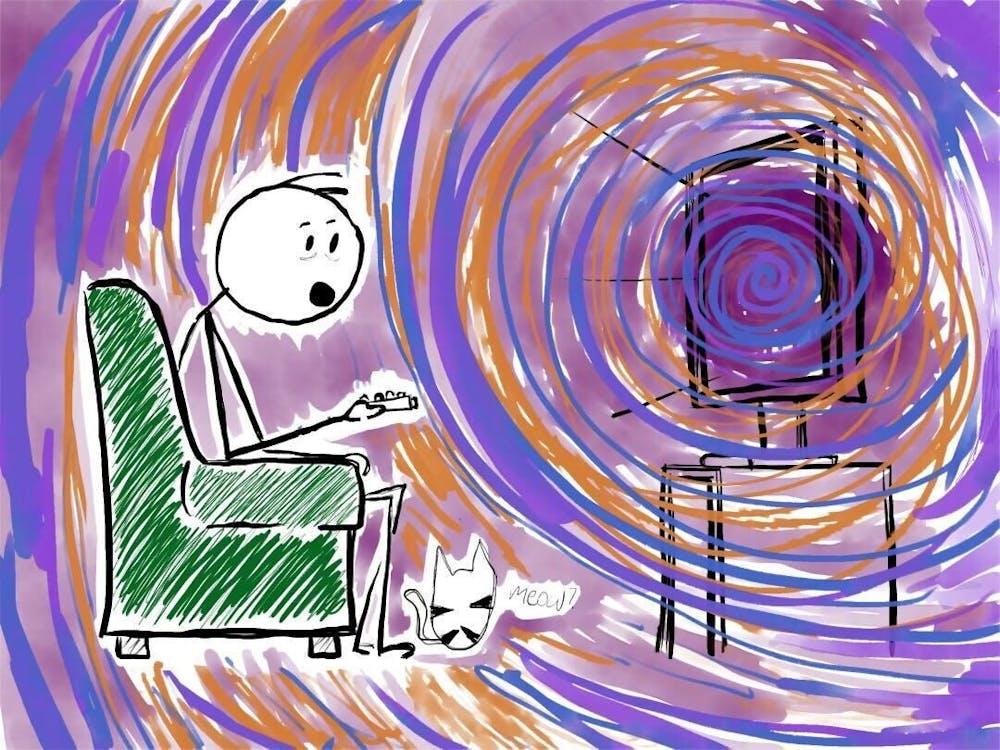I was working on my homework at the library and noticed that the person next to me seemed stressed. I didn’t think much of it mainly because that’s a usual occurrence for a college student. However, after a quick glance at their screen, I saw there was an ad playing. Then another played – like on a YouTube video when they shove two ads before the video begins for 20 seconds without letting you skip. Eventually, the student passed the ads and could watch the main video – possibly for an assignment – and then the student seemed calmer once the video began to play.
It made me wonder, to what extent do ads affect people? We see them each day, more than we may realize, seemingly out of nowhere. Like a person who continues to yell your name from across the room for attention when you're busy in a conversation, ads can make someone feel uneasy or perturbed.
What I’ve found is that ads have the power to affect someone’s sense of belonging and influence the prevalence of things like sexism or comparisons made between the individual and the one on the screen. Sexism in ads has been prevalent for years now and is mainly carried out through portrayals of women belonging in the kitchen or men being told to not be allowed to work in the kitchen because it’s a “woman's work.”
Ads also have the power to make someone compare themselves to the advertiser. It’s been found that the people on the screen are edited to make them more attractive, so the standards that people compare themselves to are oftentimes unattainable.
Ads can be so irritating because they are often out of our control. An example can be seen with the student mentioned before who just wanted to finish their assignment but had to watch ads for their video. It turns out there’s a science behind ads that make them so enticing to watch.
Edward Bernays was the nephew of Sigmund Freud and used war propaganda during his time as advertisement for companies. However, instead of deeming it as “propaganda,” he named it “public relations.” His sales were well known, especially his promotion of lucky cigarettes, naming them “torches of freedom” for women. He made things seem enticing, even if they weren’t.
It doesn’t have to be this way. Really, there should be a relationship between a consumer and its advertiser. Before we had a world of electronic advertisements, there were less opportunities for ads to show up in your life. Maybe there was a newspaper or signs in windows, but not the constant pushing for you to buy things whenever you look somewhere on social media or on the internet. It’s as though ads are the sacrifice we have to make for being able to Google things or talk to friends anytime we want. Today, it seems that the notion of having a relationship between a consumer and the advertiser has been forgotten. There’s a lack of respect for the consumer to not want to “consume” anymore.
This is not to say ads cannot be lighthearted or well-intentioned.
Some ads can be lighthearted, such as the Super Bowl commercial with the puppy and the horse made by Budweiser. An Another example includes the dancing Puppy Monkey Baby ad for Mountain Dew. These two ads stand as examples that things can be less serious than they have to be.
[Related: How holiday season stress can affect college students’ compulsive buying habits]
So, with ads that are designed to get our attention, it’s hard to not be pulled into the void of shopping, comparing and watching. I think that with phones, it’s easier for people to have their days filled with unnecessary pulls of attention. Advertisers need to begin to respect the consumers space, and make it easier to skip ads, or close them out in order to keep peace of mind.
Carolyn Marshall is a sophomore majoring in media studies with a focus in TV, film and digital production and a minor in English.






